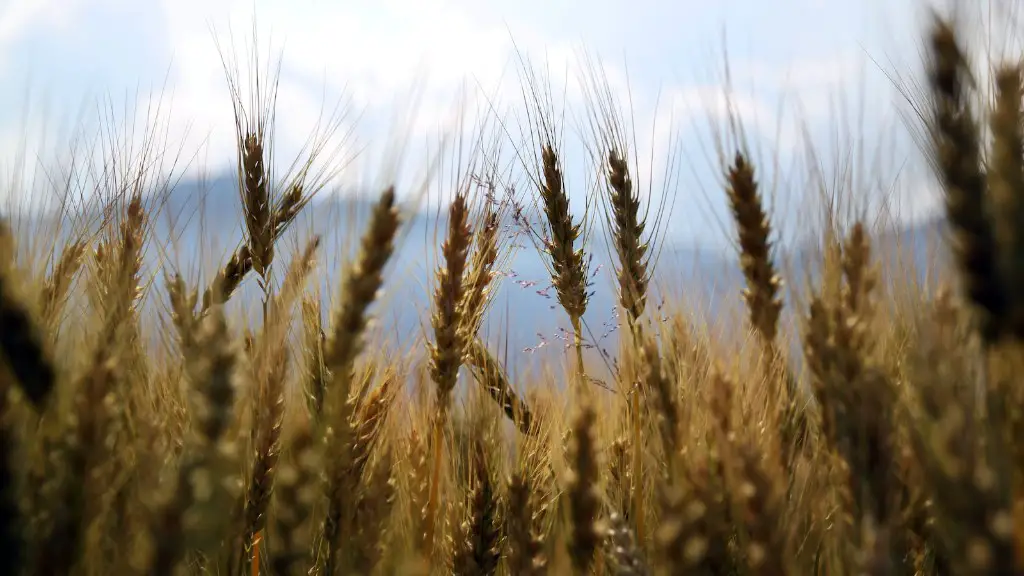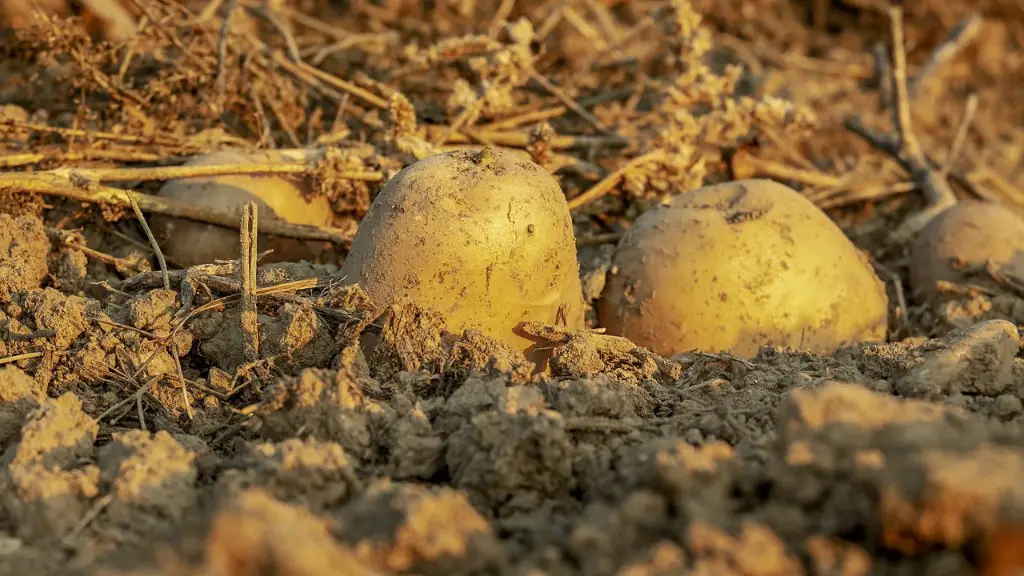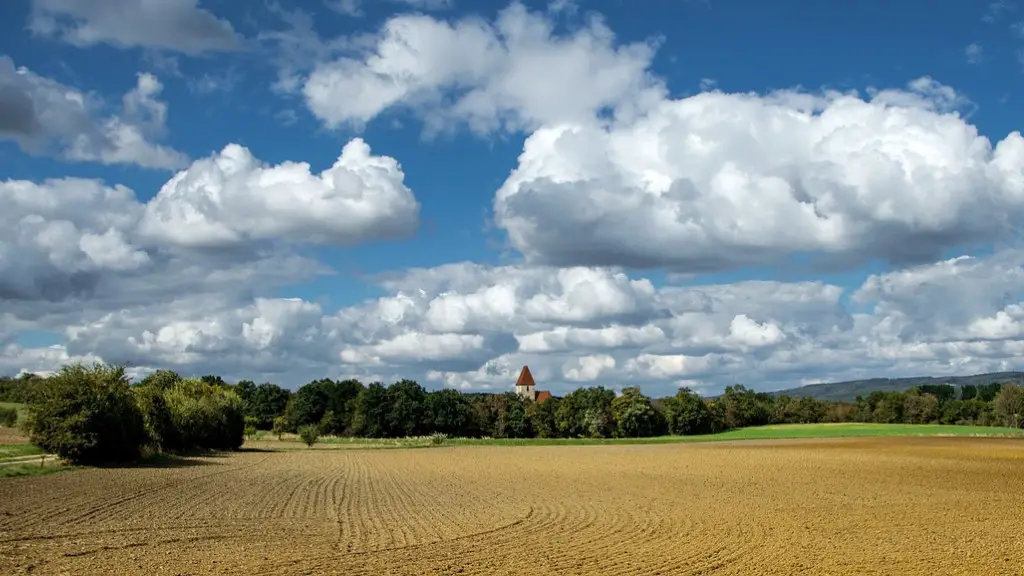Agriculture experts are highly trained professionals who specialise in a variety of agricultural practices across different fields. From soil management to crop production, from livestock breeding to conservation, these experts are an integral part of the food production system. They work to optimise the productivity of agricultural systems and to ensures that food production is sustainable, cost-effective and desirable for the public. In short, agriculture experts are invaluable for the agricultural sector.
Agriculture experts have a wide range of skills and knowledge. They understand the basics of agricultural systems, such as soil types and fertility, crop production and selection, irrigation and drainage, animal husbandry, pest and disease management and conservation. They are also experts in the latest technology and research related to the agricultural sector. Agriculture experts must be able to interpret complex data, assess and develop new farming technologies, and manage and improve crop yields.
Agriculture experts come with a variety of backgrounds and qualifications. Many hold degrees in agriculture, agricultural sciences or another related field, while others choose to pursue certification programs or apprenticeships in specific areas of agriculture. In addition, some agriculture experts are also experienced practitioners, allowing them to quickly adapt to different environments and embrace innovative approaches to food production.
Agriculture experts work in a variety of roles, such as food and fibre production manager, farm manager, soil specialist, agricultural economist, soil scientist, crop scout, agronomist and even pet nutritionist. Some experts may also pursue careers in agricultural research, development and education. In order to stay up to date on the latest techniques and capabilities, many experts regularly undertake continuing education and training.
Agriculture experts play an important role in the global food system. They work to increase yields, reduce production costs and improve the sustainability of farming practices. Through their work, they are helping to ensure that everyone has access to safe and nutritious food. The work of these experts requires a dedication, understanding and knowledge to ensure success in all aspects of agriculture.
Soil Management
Agriculture experts play an integral role in soil management. This involves understanding soil fertility and managing soil health by applying manures and other soil-building substances like compost to the soil. They additionally ensure proper drainage and installation of irrigation systems, as well as promoting pest control and monitoring soil erosion. Soil management techniques can help to optimise crop yields, conserve water and nutrients, improve soil structure and reduce inputs such as fertiliser and chemicals, thereby helping to reduce production costs.
Soil management also involves monitoring soil contamination and introducing measures to mitigate the risk of pollutants entering the food chain. It is important that agriculture experts monitor soil health in order to maintain optimal growing conditions, which is essential for sustainable agriculture and agriculture expert success.
Agriculture experts help to identify and rectify nutrient deficiencies by analysing soil samples and recommending corrective measures. By understanding soil types and fertility, they are able to formulate programmes and budgets to ensure optimal soil management, which can lead to improved crop yields and higher earnings.
The use of digital technology has revolutionised soil monitoring, by providing agriculture experts with detailed insights into soil fertility and health. By using remote sensing based data, experts are able to make more accurate soil management decisions and help to maximise crop yields.
Crop Production and Selection
Agriculture experts are responsible for selecting and producing the optimum crops suited to the particular environment and growing season. This requires extensive knowledge of crop diseases, pest control, irrigation systems and chemical fertiliser usage. They must also be knowledgeable in soil types and fertility, drainage, cultivation and manure application. Furthermore, they must be able to select and obtain the right crop varieties, as well as determine the costs of crop production in order to develop financial plans and budgets.
Agriculture experts must also be aware of the latest research and technology related to crop production, in order to take advantage of new and emerging opportunities. They use this knowledge to identify potential increases in yields and to inform the development of programmes to improve crop quality and quantity.
Crop selection can greatly affect the quality and yield of a harvest. The soil, climate, temperature and rainfall all affect the type of crop to be grown. Experts must be able to understand the local environment and adjust the crop selection accordingly. This involves selecting the best cultivars for the area, ensuring that the soil is adequately prepared for the optimal performance of the crop, and monitoring for disease, pests and other factors that may affect the crop.
Agriculture experts additionally advise on the selection of the optimum harvesting time. After selecting the best time and area to harvest, they must ensure that the crop is harvested quickly and efficiently using the right equipment and techniques. Moreover, they are responsible for post-harvest management, which includes proper storage and transportation.
Livestock Breeding
Agriculture experts are also responsible for evaluating, breeding and rearing animals to produce high-quality produce on an efficient and sustainable basis. This requires knowledge of animal nutrition, medicine, genetics and husbandry. They must be able to select the right breed and manage the animal’s environment and nutrition in order to promote optimal health and productivity.
Livestock breeding is a complex area and experts must be familiar with a variety of technologies, such as animal biotechnology, which is used to achieve desired genetic traits in animals. In addition, new technologies for tracking, monitoring and evaluating livestock, such as sensors and cognitive techniques, are being developed for use in breeding systems.
Animal husbandry is also a significant responsibility of the agricultural expert. This involves understanding the animal’s needs, health, behaviour and natural environment. This enables the expert to strive to improve the welfare of the animals while promoting optimal productivity. Experts use their knowledge of animal husbandry to establish animal health and nutrition programmes and to implement effective pest and disease management.
In addition, experts must ensure that animals are monitored adequately, in order to ensure that they receive the best possible care. They may also be responsible for monitoring animal behaviour, health and welfare, ensuring that the animal is healthy, productive, and safe.
Conservation
Agriculture experts have an important role to play in maintaining and preserving the environment. This involves studying and understanding the impact of farming and agricultural activities on the environment and developing strategies to mitigate those impacts. This is done through the development of sustainable agricultural practices that protect and conserve natural resources, such as soil and water, while also increasing agricultural productivity.
Agriculture experts are also responsible for monitoring the impact of climate change on agriculture, formulating strategies to adapt to a changing climate, ensuring that the available land and water resources are used effectively, and implementing systems for reducing the use of fertilisers and pesticides.
Furthermore, agriculture experts must understand and promote eco-friendly farming practices and ensure that production meets local and global food safety standards. They also help to promote biodiversity by selecting crops and livestock breeds that are best suited to the environment and by using sustainable farming practices that support healthy ecosystems.
Agriculture experts strive to ensure the sustainability of agricultural systems, while providing food production that is safe, healthy and affordable. These experts are responsible for managing the natural environment and striving to ensure that agricultural production meets the needs of the local and global populations.
Modern Technologies
Agriculture experts use the latest information, tools and technologies to improve the efficiency and productivity of agricultural production. This includes the use of precision agriculture technologies, such as GPS-enabled guidance systems, sensors, drones, robots and self-driving tractors, which provide accurate, real-time data to simplify the management of crop production. Such technologies can help farmers to optimise the use of inputs, monitor crop health and ward off serious pests and diseases.
Agriculture experts are also utilising the internet of things to improve the accuracy, efficiency and sustainability of agriculture. In addition, the use of big data and artificial intelligence is helping to increase production yields and reduce production costs.
Expertise in the use of such technologies can help agriculture experts capitalise on new opportunities as well as identify and address agricultural challenges. The technologies bridge the gaps between farmers, food companies and governments in order to better coordinate efforts and make informed decisions that are beneficial for all.
Project Management
Agriculture experts play an essential role in the successful execution of agricultural projects. This involves overseeing the development and implementation of the project, which includes budgeting, planning, scheduling and monitoring. The successful completion of agricultural projects requires expertise in project management, as well as extensive knowledge of agricultural principles and practices.
Agriculture experts must develop project plans and budgets to provide visibility into the scope and cost of the project. They must also have knowledge of the region’s resources, in order to ensure that the project is conducted in an environmentally responsible manner. In addition, they must coordinate with technical experts, local communities, and other stakeholders in order to execute the project successfully.
Agriculture experts must monitor the project’s progress, assess risks and adjust the project plan as needed. They also provide guidance to the project team and coordinate with other experts as needed, in order to mitigate any risks and address any challenges.
Project success depends on the successful and effective execution of the project plan. Therefore, it is essential that agriculture experts are knowledgeable in project management principles, in order to deliver successful projects.
Financial Management
Agriculture experts are responsible for assessing and managing the financial resources of the agricultural industry. This involves developing and implementing financial plans, monitoring and analysing expenditure, and reporting and forecasting potential financial challenges. They must also have knowledge of government subsidies and regulations in order to ensure that the organisation is compliant with applicable laws and regulations.
In order to manage financial resources effectively, agriculture experts must understand the financial position and needs of the organisation, as well as have excellent financial management skills. They must be able to calculate and analyse ratios, such as capital expenditure, operating costs and return on investment, in order to help the organisation make sound and profitable decisions.
They must additionally be able to accurately forecast and report cash flows, in order to ensure that sufficient funds are available for operations. Furthermore, legislation such as the General Data Protection Regulation (GDPR) must be adhered to, to ensure that the organisation is compliant with data protection laws.
Agriculture experts must also be able to assess financial risks and identify areas where financial resources could be more effectively utilised. By understanding government subsidies, market conditions and revenue streams, agriculture experts are able to provide advice and assistance to the organisation to ensure that funds are allocated wisely and expenditure is managed efficiently.
Risk Management
Agriculture experts are required to understand and manage a variety of risks, ranging from weather risks to pest and disease outbreaks. This requires knowledge of risk management techniques, such as risk assessment, risk avoidance, risk transfer and risk retention. They must also be able to assess the potential risks and their probabilities, in order to determine the most effective course of action.
Risk management requires agriculture experts to understand the legal and regulatory requirements in order to ensure compliance and minimise potential liabilities. They may also monitor project activities, in order to identify potential risks and to ensure that they are addressed promptly and effectively.
Agriculture experts must also strive to minimise the impact of agricultural practices on the environment and the public. This involves understanding and supporting the principles of sustainable agriculture, such as reducing inputs, preserving soil health, and preserving biodiversity. They must additionally be aware of the latest techniques in soil and water conservation.
Agriculture experts must also be able to identify emerging risks and recommend measures to reduce these risks. By understanding the potential consequences of risks and developing strategies to mitigate them, these experts can ensure the successful management of agricultural operations.




